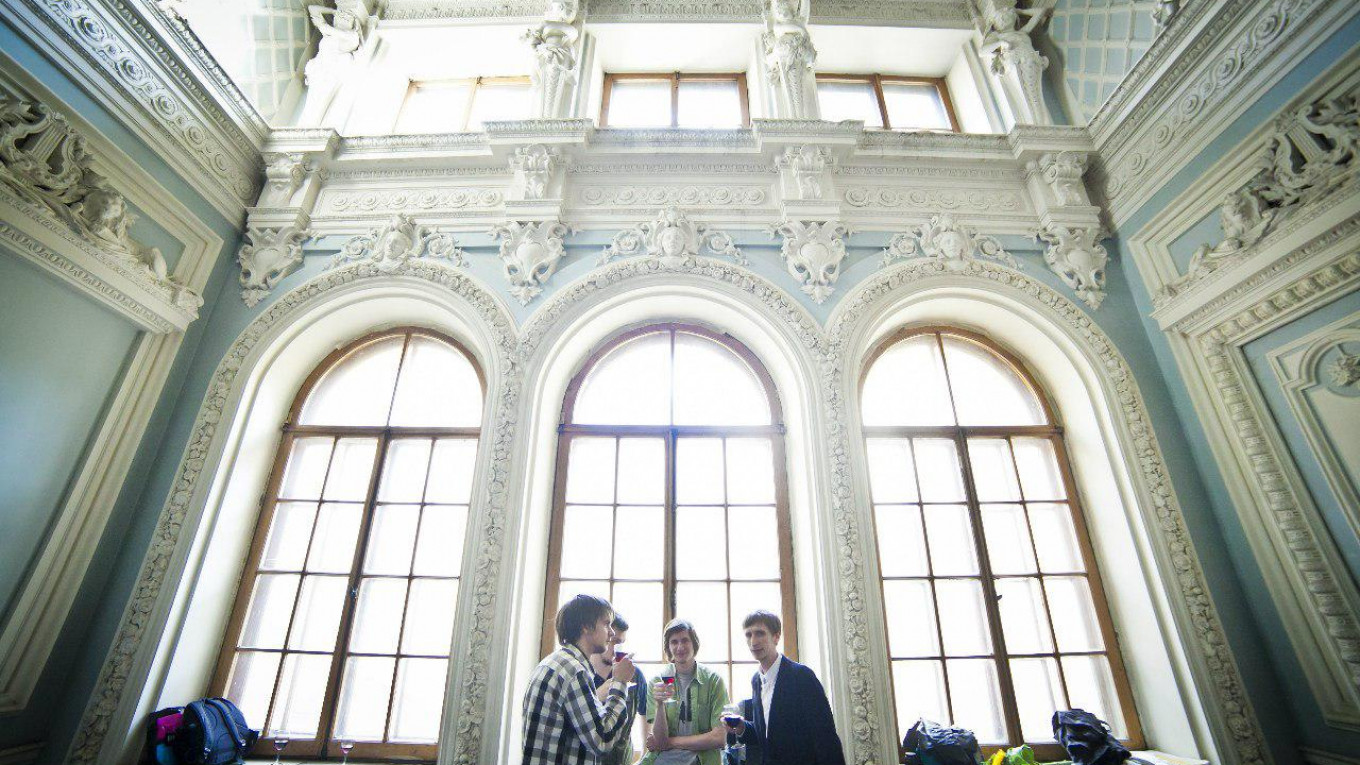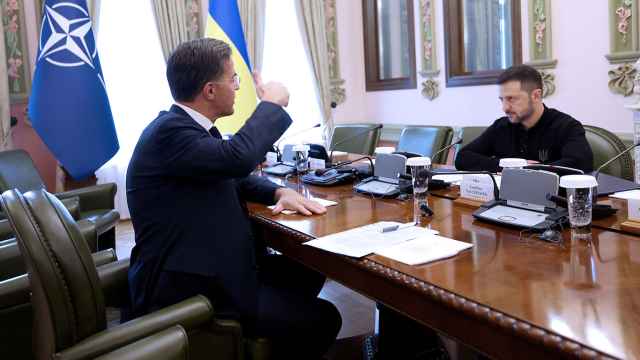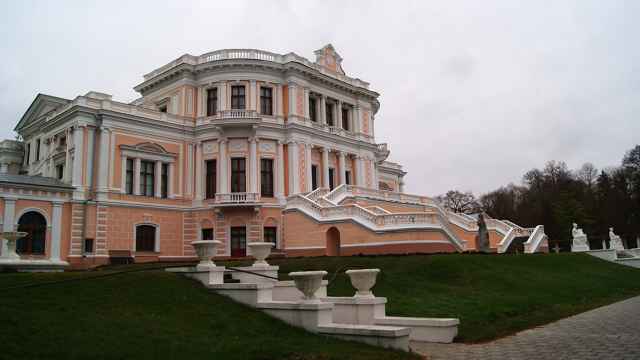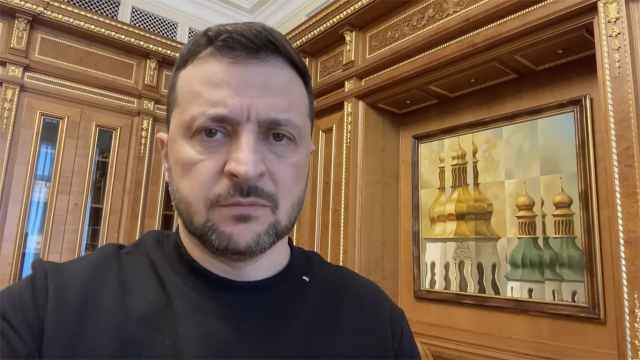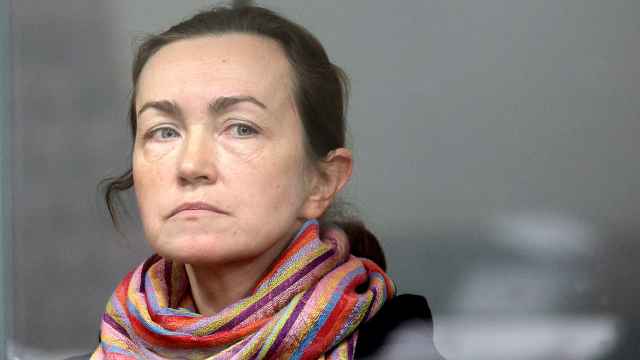The European University in St. Petersburg, a small postgraduate outfit, has always felt slightly out of place in modern Russia. Its faculty falls heavily on the liberal end of the political spectrum, and it draws international students to study in Russia from across the globe. Unlike most Russian universities, EUSP is highly respected by foreign institutions.
As a bastion of liberal thought, EUSP has at times drawn the ire of Russia’s increasingly conservative authorities. In 2008, the St. Petersburg government closed the university over supposed fire code violations. As administrators rushed to meet government officials, professors huddled with students in coffee shops to keep classes going.
Then, following an uproar, St. Petersburg authorities backed down. Some say an appeal to President Vladimir Putin helped grease the wheels. Regardless, the university lived to fight another day. And when the university fell afoul of authorities again in early December, administrators projected an air of confidence that they could work it out once again.
“Last week, the university appealed to President Putin asking for help to resolve the [latest] issue,” Gevorg Avetikyan, associate director for the University's master's degree program in Russian and European studies wrote on Facebook on Dec. 12. “Putin has supported the cause and we expect that Rosobrnadzor will find a way to step back from their initial decision.”
The university on Dec. 13 announced on its website that a Moscow arbitration court has granted the institution a temporary reprieve from the watchdog’s revoking of its license. As of Dec. 14, Rosobrnadzor — the state education watchdog — listed the university's license as active, and classes will resume Friday.
“This is not a victory yet, but a first crucial step towards it. EUSP will resume classes when we receive official paper about this decision, hopefully tomorrow,” Maria Trofimova, the university’s dean of international programs wrote on Facebook.
Putin asked to intervene in European University ruling: Read our background on the story which is rocking Russian higher education.
Politically Motivated
Rosobrnadzor claims the university did not have a sufficient number of its political science and sociology faculty conducting practical field research, and that staff on fixed-term employment contracts were not properly certified. Another supposed violation was the apparent lack of a student gymnasium at a specified address.
Already, the watchdog appears to be walking back from its attack. A TASS news agency report on Dec. 15 quoted Rosobrnadzor official Sergey Rukavishnikov as saying there were no violations that the university would be unable to address.
Speculation that Rosobrnadzor's crackdown on EUSP was politically motivated spread quickly. The university, beyond its liberal bent, has close ties to foreign education institutions - a lightening rod for unwanted government attention. It also works with a number of so-called “reformist” think-tanks in Russia, including former Finance Minister Alexei Kudrin's Center for Strategic Research. Kudrin, a liberal politician but also close friend of President Putin, sits on the university board, and is perhaps the university’s most prominent advocate. Mikhail Prokhorov, an oligarch linked to liberal political causes, is also on the university’s board.
Artemy Magun, dean of EUSP's political science and sociology faculty, wrote on Facebook that the crackdown appeared to be politically motivated. Officially, however, EUSP’s administration distanced itself from speculation that the attacks were politically motivated.
Outcry
With classes set to resume Dec. 14., students and faculty have been encouraged to refrain from protesting the government’s actions until a final ruling is made.
"Some students and professors asked whether they should go on to demonstrations, sign petitions etc. The rector's opinion was: the government seems to be positive and 'on our side,' so let them do their work. If they fail, then as free citizens you [have the right] to demonstrate [and] mobilize," he wrote.
Beyond Russian borders, protesters have already gathered outside the Sorbonne University in Paris to show their solidarity with the students and professors of EUSP.
But for the students and faculty of this liberal outpost in St. Petersburg, there could perhaps be no higher form of moral support than the attendance of Russia’s leading rockstar, Leningrad frontman Sergey Shnurov, at an EUSP lecture on his band’s philosophy on Dec. 12.
Not everyone within the EUSP community is calm about the latest spat with city authorities. Students who have completed their studies and were awaiting their degrees have found themselves in an unsettling state of limbo.
"I wish students were kept in the loop regarding government issues, but we are definitely not," one student from the university's international program told The Moscow Times on the condition of anonymity.
Avetikyan says the delays in communication were the result of the university working to establish the facts of the case.
A Message from The Moscow Times:
Dear readers,
We are facing unprecedented challenges. Russia's Prosecutor General's Office has designated The Moscow Times as an "undesirable" organization, criminalizing our work and putting our staff at risk of prosecution. This follows our earlier unjust labeling as a "foreign agent."
These actions are direct attempts to silence independent journalism in Russia. The authorities claim our work "discredits the decisions of the Russian leadership." We see things differently: we strive to provide accurate, unbiased reporting on Russia.
We, the journalists of The Moscow Times, refuse to be silenced. But to continue our work, we need your help.
Your support, no matter how small, makes a world of difference. If you can, please support us monthly starting from just $2. It's quick to set up, and every contribution makes a significant impact.
By supporting The Moscow Times, you're defending open, independent journalism in the face of repression. Thank you for standing with us.
Remind me later.



